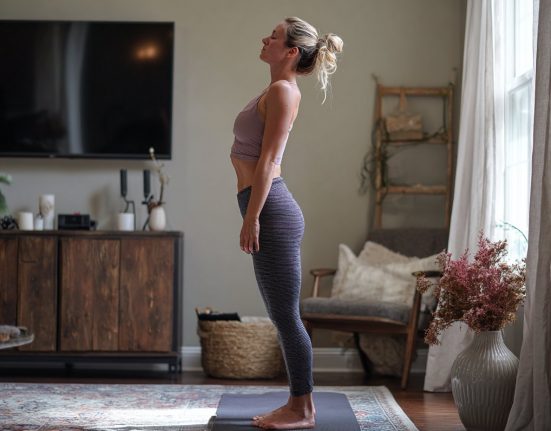Health benefits of yoga: Practising yoga keeps your body flexible, helps to manage pain, lifts your mood, and also improves your health in every day life. From easing anxiety to helping with diabetes, here’s how adding yoga to your every day routine can help boost your health.
Health Benefits of Yoga
Do you set aside ten minutes in the morning or before dinner for a few stretches? Many people practice different yoga poses for several reasons including, fewer headaches, calmer evenings, easier mornings and more. For some, it’s the only the peaceful time they get all day; for others, it’s a way to move without punishing the body.
Reduce stress, build healthy habits
According to the National Center for Complementary and Integrative Health (NCCIH), yoga supports general wellness by easing stress, building healthier habits, and improving mental balance. Over time, it can lift the quality of sleep, steady posture, and bring relief from aches that medicines can only half-quiet, from stiff necks and sore knees to that low, nagging back pain you never quite shake off.
Breathe away everyday stress
A few deep breaths, a slow forward bend, and the nervous system gets the signal to slow down. This gentle pause in the day lowers blood pressure, softens tight shoulders, and gives the mind room to declutter. The real shift is not in the pose, but in how the body learns to relax without prompting.
Ease anxiety, improve mental well-being
When the mind starts to race, the breath pulls it back. Yoga helps ease anxiety, nudging you out of mental loops and into the present moment. Over weeks, people often notice they’re less quick to snap, more willing to listen, not because life is easier, but because they’ve built a calmer inner space.
Invite deeper, better sleep
An evening stretch and slow breathing can help the muscles release their grip. This simple, repeated ritual can help you sleep bette. Proper sleep can leave you fresher than any mid-morning cup of tea.
Fight chronic pain
Whether it’s knees that groan on the stairs or a back that protests after long hours at a desk, yoga can come to aid. Gentle movements strengthen support muscles, improve alignment, and reduce the pain signals the brain registers — all without the jarring impact of gym workouts.
Manage headaches before they increase
Migraines and tension headaches often have early warning signs, a tight neck, shallow breath, a creeping sense of strain. Yoga teaches you to spot these cues and release the build-up before pain takes over, keeping episodes less frequent and less fierce.
Keep your weight in check
Yoga isn’t about burning calories easily; it’s about slowing down enough to notice what your body truly needs. The mindfulness, paired with gentle strength-building, helps curb mindless snacking, balance stress hormones, and keep weight changes gradual and lasting.
Swap smoking for stillness
For someone trying to quit, the pull of a cigarette is often strongest in moments of restlessness. Yoga offers a different ritual, a few minutes of focused breathing or movement, easing cravings, improving lung function, and giving the mind a new anchor.
Soften the edges of menopause
Hot flushes and restless nights can leave you feeling adrift. Slow, cooling poses and calming breathwork help steady hormones, improve bone strength, and give you a sense of control over changes that feel anything but controllable.
Rebuild in recovery
In addiction recovery, the hardest part is often sitting with discomfort. Yoga creates a safe way to inhabit your body again; to move, breathe, and cope without old crutches. It encourages you to deal with difficult days with calmness and poise.
Make illness more manageable
Living with a long-term condition means learning new limits. Yoga helps strengthen what’s still strong, ease what hurts, and lighten the mental weight of daily symptoms. These small physical and emotional gains can make a positive difference to your health








